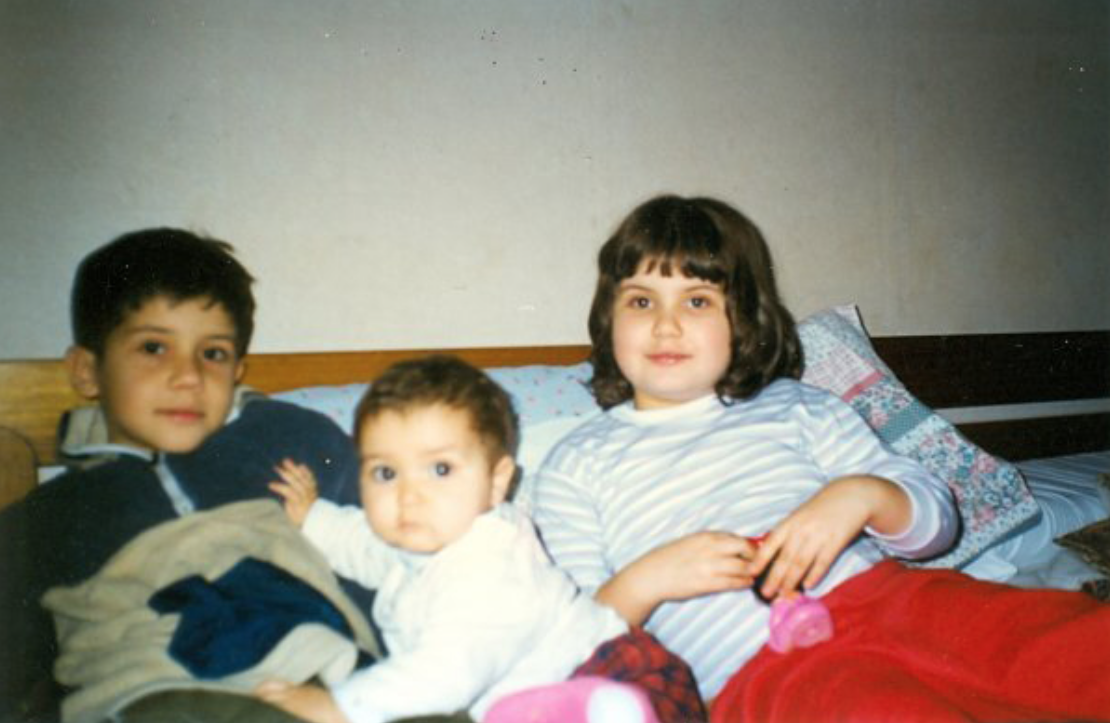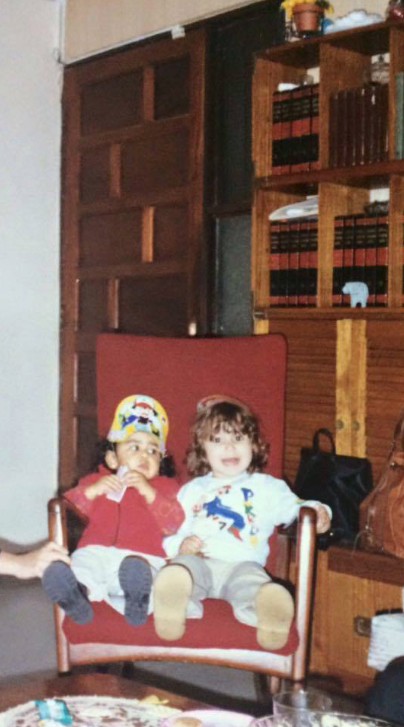Worlds Apart: Student’s dual heritage leads to bittersweet connections
By: Cala Villavicencio
For all of my life, I’ve heard two languages in my household, switching between Spanish and English. In fact, I couldn’t speak in full sentences until I was around 2 ½ years because I was so confused between the two. Before then, my mom always told me I was like a walking Spanish dictionary, pointing at an object and reciting both the English and the Spanish. Being from another country and moving at such a young age hasn’t necessarily given me any kind of major change in my life, but going through the immigration process has definitely been quite a ride.
 I could always tell there was something different about my family, but I don’t think I fully realized this until preschool where nobody could pronounce my last name. Granted, it’s a mouthful, and I was also confused because they would pronounce my first name “Care-oh-line-ah” instead of “Car-oh-lean-ah,” which is what was used at home. I was always called “Cala” at home because I made up the nickname being two years old, so I decided to tell everybody to call me “Cala” instead of whatever pronunciation they used.
I could always tell there was something different about my family, but I don’t think I fully realized this until preschool where nobody could pronounce my last name. Granted, it’s a mouthful, and I was also confused because they would pronounce my first name “Care-oh-line-ah” instead of “Car-oh-lean-ah,” which is what was used at home. I was always called “Cala” at home because I made up the nickname being two years old, so I decided to tell everybody to call me “Cala” instead of whatever pronunciation they used.
While this goes on to this day, I would also be confused because other families spoke only English at home while I spoke two. My mom explained that we were Chilean, and that they moved here when I was barely an entire year old, so I couldn’t really remember most of it and that they spoke Spanish.
As a young kid, I thought this was the coolest fact ever, so I told everybody and their mothers that I could speak Spanish. When another kid in the class had mentioned he also spoke Spanish at home, I would get excited because I felt a weird connection with them, knowing they have to switch languages too.
But being an immigrant also had its downsides. People used to call me Dora because I spoke Spanish and had short hair, and they would often refer to me as a Mexican. These are small downsides, but it still happens today. Newsflash, not all Spanish speakers are Mexican! … moving on.
Being from another country, a majority of my family resides in Chile, so every couple of years one of my grandparents would visit us and bring gifts, or while they were here, they would buy gifts for us. I never really saw the true importance of their visits until I was around 10 years old when my grandpa had bought me ice skates, which led to about two or three years of lessons, shows and techniques that I always got the hang of. He also always had me teach him English words and help him form sentences when he was stumped.
 When they left, I remember being devastated. I had promised myself to be more appreciative when relatives were here because they were traveling 8,000 miles and an overnight flight just to be with us. This happened all the time until summer 2015 when my parents bought us tickets to visit the homeland once and for all for the first time since 2000.
When they left, I remember being devastated. I had promised myself to be more appreciative when relatives were here because they were traveling 8,000 miles and an overnight flight just to be with us. This happened all the time until summer 2015 when my parents bought us tickets to visit the homeland once and for all for the first time since 2000.
I never realized how horrible layovers and red-eye flights could be. I remember sweating in the Atlanta heat while we waited an entire nine hours before getting on our 10-hour flight. Once we finally arrived, we had to board yet another plane that took about three hours to get to my hometown, Arica.
At the airport both my grandmas were there, and then I was hit with all of these nostalgic feelings, being stuck in a wave of emotions as I looked at everybody. This was the moment I was finally looking forward to for 15 years. I couldn’t have been happier. Two weeks into being there, we all had a family reunion for my parents’ vow renewals. Meeting all of the cousins I was hearing about for years was also so emotional because we got along so well, and they always remembered me, but I could never remember them.
Unfortunately, after living in the United States for so long, my Spanish isn’t the best. I can understand what everybody is saying, and I know all of the words, but forming a sentence myself is such a struggle. I can speak in simple sentences and some complex sentences in Spanish class, but I feel I’m more comfortable in a class where everyone else is struggling with some words or how to speak grammatically correct rather than with 20 family members expecting me to speak as they all stared at me while I was struggling to speak a comprehensible sentence.
So, for a majority of the stay, I stayed quiet. Some of my cousins and aunts could speak English as well as my grandfather, so we could communicate when I couldn’t respond to their Spanish. This helped a lot, being uncomfortable and getting nervous whenever I spoke to anybody, but it made me feel a little bad that waiting for this trip for 15 years, I could’ve spoken more Spanish.
My parents always reassured me it was OK and that I am trying my best (though I could’ve tried harder honestly) and that I should just enjoy my stay while I can, and I did! It was so emotional leaving such a beautiful country.
Living life without all of your family in the same country can honestly be so hard; keeping up with Skype calls on holidays, talking on the phone for a good two hours while all of your relatives call and ask to speak to everybody in your family, and when one unfortunately passes away. Having every Christmas or New Years seeing my parents huddled around my father’s desktop computer around 9 p.m. and hearing all of my cousins that I never met and my aunts and uncles cheering and celebrating had honestly hurt.
I never got to meet my dad’s brother or my cousin who I always Skype with or even my parent’s friend who I always called “Uncle.” This is a very bittersweet thing I had always gone through. It’s like being happy for them while they enjoyed the summer when we were suffering in the Iowa winter.
Being bilingual is always such an interesting thing to live with, switching from English to Spanish depending on who you spoke to and communicating with family members easily. I honestly wouldn’t change who I am today, maybe speaking better Spanish is the only thing I would change, but I’m proud of my Chilean background and excited to visit again Summer 2016.









You must be logged in to post a comment Login